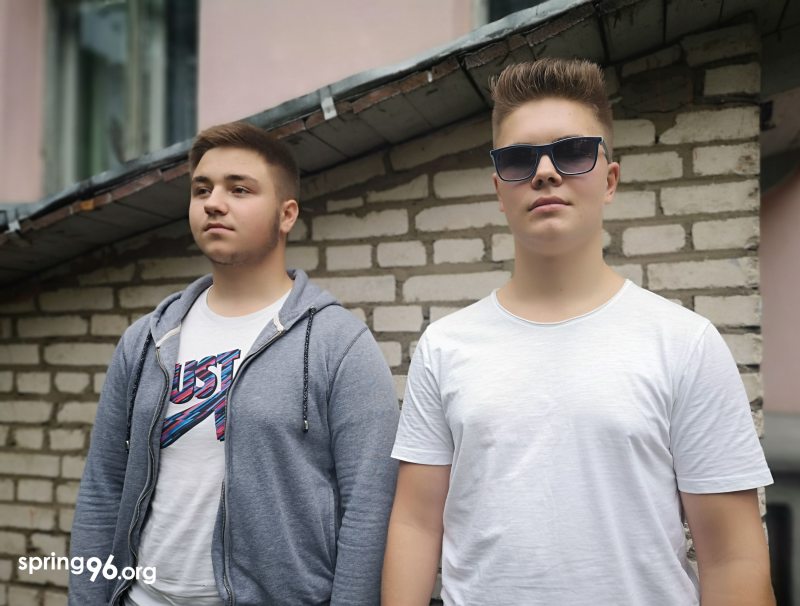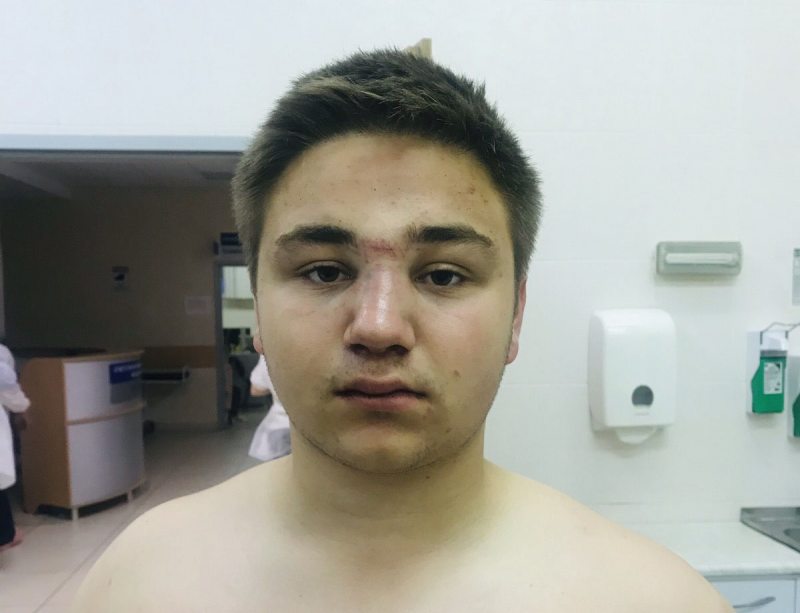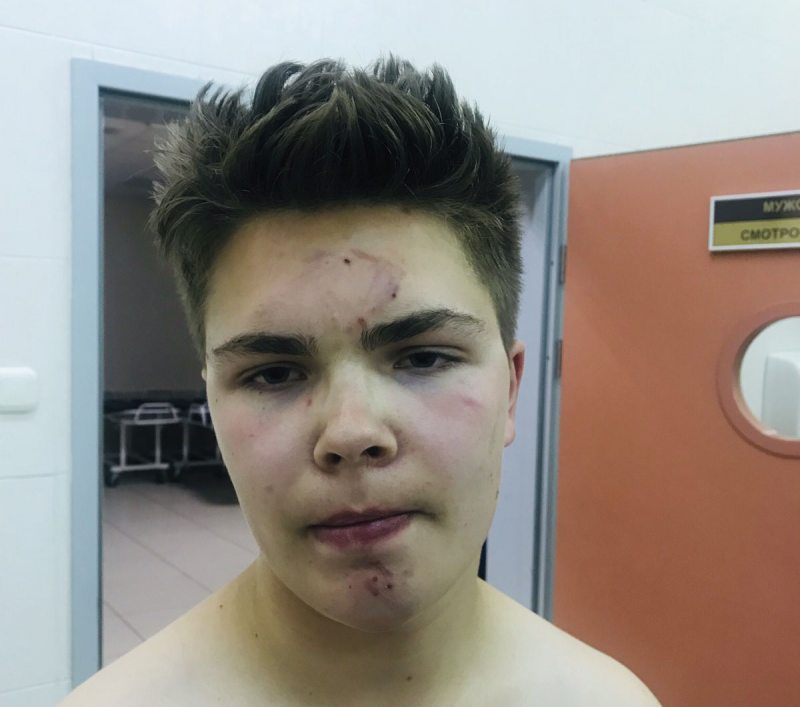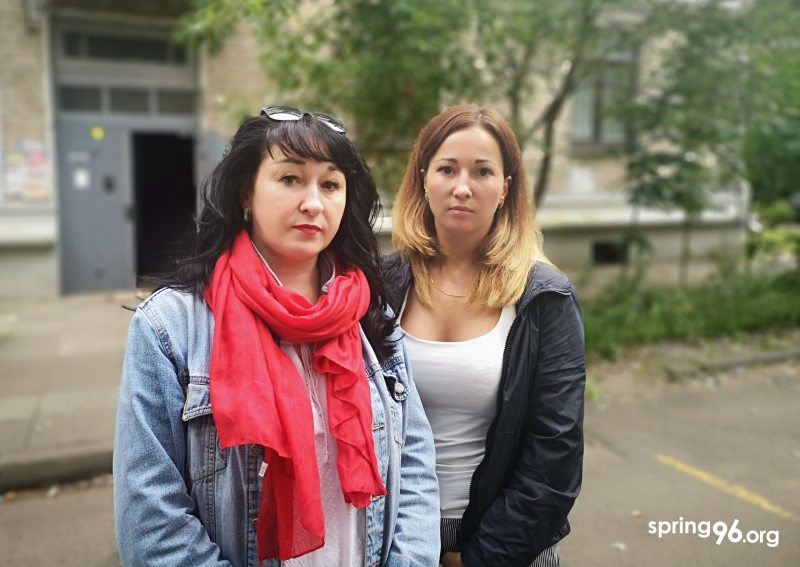"We felt like we were chickens brought to a cage with tigers." Survivor stories
The Human Rights Center "Viasna” and the World Organization Against Torture (OMCT) launched a campaign to document cases of torture, cruel, inhuman and degrading treatment of protesters on August 9-13. Some testimonies of people who survived torture and violence will be published on our website as evidence of crimes committed by security forces.
Emil Kutas and Martsin Minin are cousins from Minsk. They were going to visit a pizzeria with friends on the evening of August 11. However, they were severely beaten by riot police. The cousins had informed the police that they were minors: Emil was 17 and Martin was 16 years old (at that time). Their mothers Katsiaryna and Halina picked them up from the police station and immediately took them to the hospital. Together they told "Viasna" their story.
Detention
On August 11 at about 11 p.m., Emil, Martsin, and their friends (they were seven people in two cars) came to Domino's Pizza in Dziaržynskaha Avenue, but the pizzeria was closed. The guys stopped for a while at the parking lot of Magnit shopping mall. Here is Emil's story:
"We saw that the crowd of people started to disperse, but we didn't understand why. I turned my head and saw a special unit of the road police driving into the parking lot. We immediately got into our cars and wanted to leave because we were scared. But they blocked two exits of the parking lot. The riot police came out of the road police car. They poked their shotguns into our windows and told us to get out. We did. They put us on our knees and asked, 'Do you want change?' They hit us on the head with batons. They threw out our possessions. Martsin had a backpack, they just took it and [aggressively] shook it out. There was a bottle of Fanta in there – they said we had wanted to make a Molotov cocktail with it."
The law enforcers were wearing a green camouflage uniform and a bulletproof vest. One of them used a gun – a rubber bullet went through the window of Emil's friends' car, almost hitting them.
Then everyone was loaded into a big car that looked like a police van, but it had no stairs, and the floor of the cabin was at the neck level of the guys standing outside. So they had to jump up and pull up to get in.
"Out of fear you tried to get in there as fast as possible because it seemed like if you didn't get in there in time, you were going to get beaten up even more. That's why we were jumping up as best we could, trying to hold on something," recalls Emil.
Martsin showed his hand to the law enforcers (the boy has a disability: several phalanges of his right hand are missing). But they simply said, "Jump in!"
The boys also informed the police that they were minors. "Oooh, youngsters!" reacted with laughter the riot policemen.
"In the cabin, the law enforcers had an electric shield, plus, they were tasing everyone in a row," Martin recalls. "They also took my phone out of my pocket and asked me to unlock it. One of the officers took my phone and went away. Then he came over and said he'd formatted it.
At the police department
All the guys (along with Martsin and Emil, they also arrested their five friends) were taken to the Maskouski police department. However, the guys found out their whereabouts only upon release.
The teenagers were taken from the van to the fourth floor of the police department, they were beaten on the way: "hits landed on the legs, back, kidneys, ribs, and head." The detainees were taken to the assembly hall. The first thing Emil saw was the bloody floor:
"There's white tile in the hall, but it was all bloody. They put us on the floor, put our hands behind our backs, and we had to crawl to the end of the hall using our elbows. Meanwhile, half of the riot police started walking all over us, and half of them just beat us with batons. You were crawling, and blows were felt all over your body."
Lying on the floor, the detainees had to answer questions: full name, date of birth, place of residence and study, and contacts of relatives who could pick them up. After that, each was taken to a separate room for drawing up a report. Emil was interviewed by a woman and a man in a police uniform:
"So they sat there and giggled deciding what article to charge me with. Then the man said: 'Now we're going to write you up that you were walking in the park at night and selling pictures of yourself to minors.' I said I didn't do anything, I was sitting in the car. And he said, 'Shut your mouth. I'm going to stick a knife in an officer's vest and tell him it was you who attacked him.' Later, he asked what I had been doing at the parking lot and put his foot in my groin. He pressed harder with each question. I already thought that if he hit me harder I was going to be disabled."
Then the policeman asked Emil who his local police officer was. Emil gave his name, Siarhei Viarouka, and the latter was brought in.
"I thought I would be... well, protected... That my district officer would take me to his office, so I wouldn't get beaten up there. But he just rudely told me to shut my mouth and added that I was throwing stones at their cars.
Then the riot police picked me up, took me into that assembly hall with my arms twisted, face down. I could see by the number of legs that another riot policeman was standing there. He asked about me, 'Who is this guy?' And the one who was accompanying me said, 'We've detained a teenager.' The next second I got a hard blow on the back. I started shaking with fear, I was thirsty because I couldn't breathe through my nose – there was blood in it. Because of all that I couldn't breathe in. He asked, 'Why are you shaking, animal?'"
Both Emil and Martsin were made to sign the reports without reading them. Both guys said there were four sheets, and they put three or four signatures on each one.
Emil also noted that he saw one of the detainees have an epileptic seizure and the other had a broken knee.
Emil and Martsin were constantly threatened in the police department, but it was hard for the boys to say whether the threats came from the simple or riot police, because all the detainees were in a "face down" position.
"They said, 'You're lucky, because all the cops are busy, otherwise we'd bring you into the woods and you would dig a hole'," says Martin.
Moreover, the law enforcers kept asking the detainees: "How much did you get paid?", "So did you have enough of throwing stones?" and insulted them.
After the reports were drawn up, both Martsin and Emil were taken to a video shooting room, where they had to give their personal details again on camera.
"20 minutes later I could hear the security guards starting to talk amongst themselves, 'Fuck, now these kids are going to be taken away by their parents.' It was so relieving when I heard that, because before they were saying that I would sit in a cell for five people and 'We'll put 50 of you there and close off the ventilation,'" recalls Emil.
The only personal belongings Emil was given back when he was released was his phone. The passport, keys, cash ha had on him had disappeared. The search report was not drawn up for him, unlike for Martsin, although the latter did not see it himself. Nevertheless, Martsin's report had a note "refused to sign" and included the following names: "A.N. Krupicheuski conducted a personal search and drew up a report", and S. Morozko was listed as an attesting witness. Martsin found this report in his backpack – all his belongings were returned to him upon release, except for his glasses which fell off when he had been beaten on the head.
The release
Martsin's mother Katsiaryna received a phone call at at 3.20 a.m. on August 12: "Come to the Maskouski police department, pick up your son, you have serious problems."
"Martsin was taken out of the police department, it was dark," Katsiaryna shares her story. "A short blond officer wearing a black mask came out. At first, he explained quite politely, 'Your son was caught, he was out late, we had an explanatory talk with him, he said he would never do that again.' I listened and it all didn't look serious to me. Then he said, 'Write that you take your minor child and have no claims.' I signed and as soon as I gave him the paper, he took a step back, immediately changed the tone of the conversation and said, 'A report has been drawn up against your son – participation in an unauthorized mass event. If you complain, you'll be f*cked.' I replied that I didn't agree. 'Then you should complain to the prosecutor's office,' he said.
Halina, Emil's mother, learned about her son's detention from Katsiaryna. Emil left the police station at 4.52 a.m.
"When we saw Emil, everything clicked into place," said Katsiaryna. "I dialled the number they had called me from and said that I didn't agree to anything, what's going on? I was told to 'complain to the prosecutor's office' and then they hung up. My sister Halina was hysterical when she saw her son in such a state."
The mothers took their children to the Emergency Hospital.
The hospital
"The doctors there already knew where we came from," recalls Halina. "Because they were asking each other, 'Are they coming from there?' I think we were literally the first to arrive because after us they started bringing in patients in heavier conditions."
"There was a guy under escort, handcuffed," continued her story Katsiaryna. "His head was shaking badly. I went over and asked him, 'Who should I call? Who to inform?' He quickly told me the phone number of his mother. The escort consisted of two very young guys. They said, 'Don't tell her he's coming from the police.' I reacted, 'Look, what do you mean I'm not supposed to say it if my children have been injured?!' I called his mother, and we're still in touch with her. The guy had a severe head injury."
Martsin and Emil were diagnosed with a mild closed head injury and a concussion. Moreover, Emil had a broken big toe.
P.S.
To "Viasna's" final question about what the guys would like to add to their story, Emil replied:
"In the police van, it felt like we were chickens brought to a cage with tigers, and it made them happy. They were beating us and laughing, getting satisfaction from the process...
When I was lying on the floor in the police station and I just listened to them yelling – their voice was so shaky... I mean, he doesn't really have that voice, but he makes it sound tough on purpose like he's so cool. You can hear the shaky voice, the voice he's trying to make lower. And it's shaking like that because they're so scared of it all. And yet they do it anyway, they hit people..."
More stories of people who survived police violence and torture:
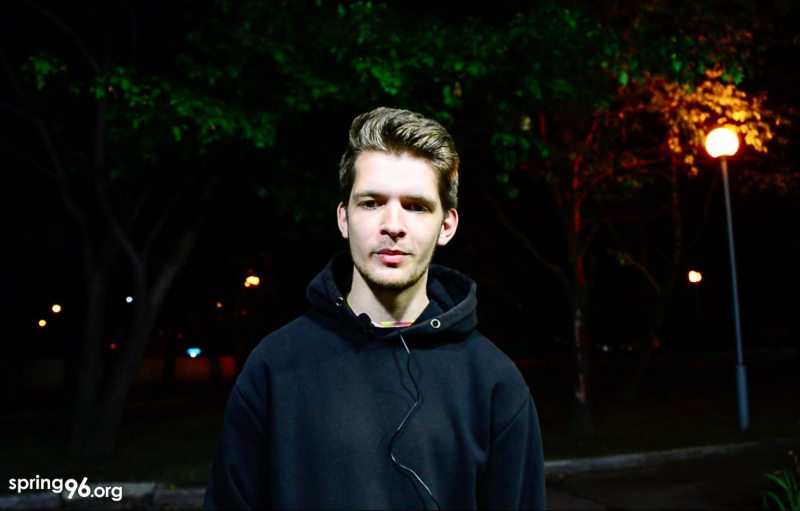
"Let's take him to the police van, let the guys have fun." Survivor stories
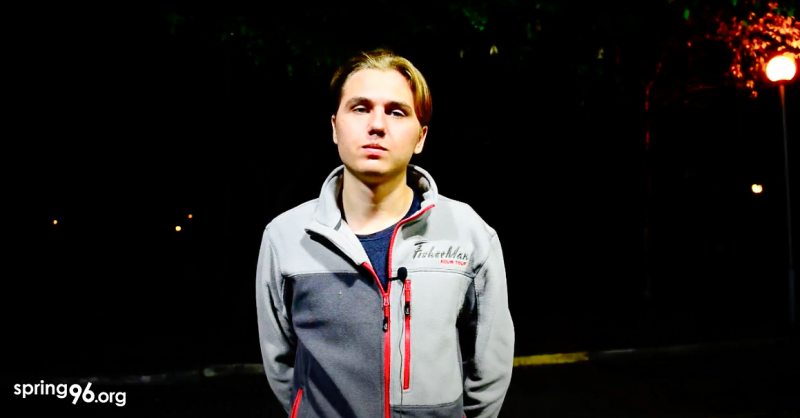
"We brought you to the execution, guys." Survivor stories
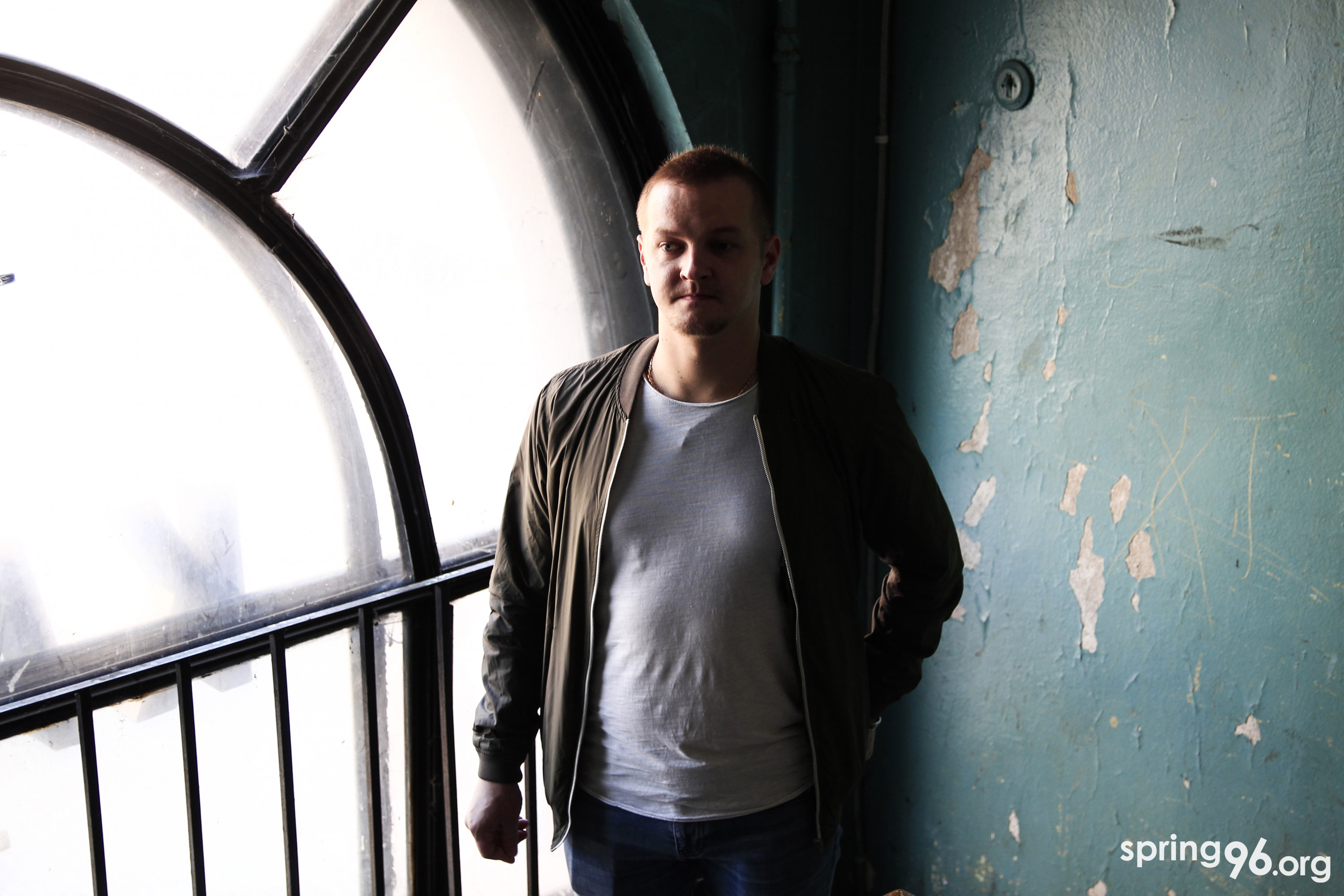
A bartender talks about his 3-day arrest. Survivor stories
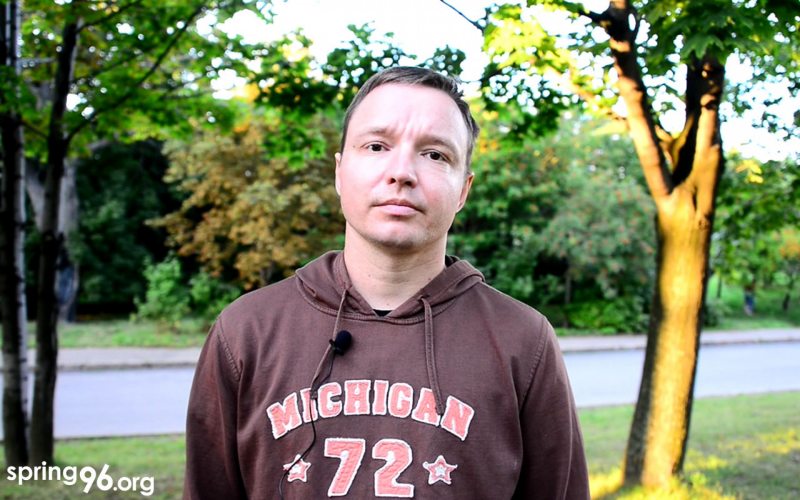
"A riot policeman sat on me in the police van and exclaimed: 'Look at my nice chair!'" Survivor stories
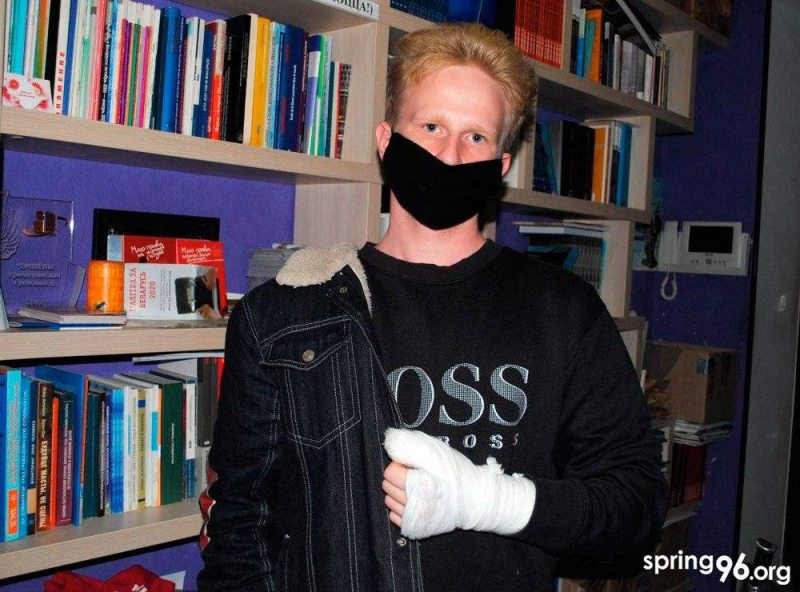
"They threw my skateboard away and told me I feigned a broken arm." Survivor stories
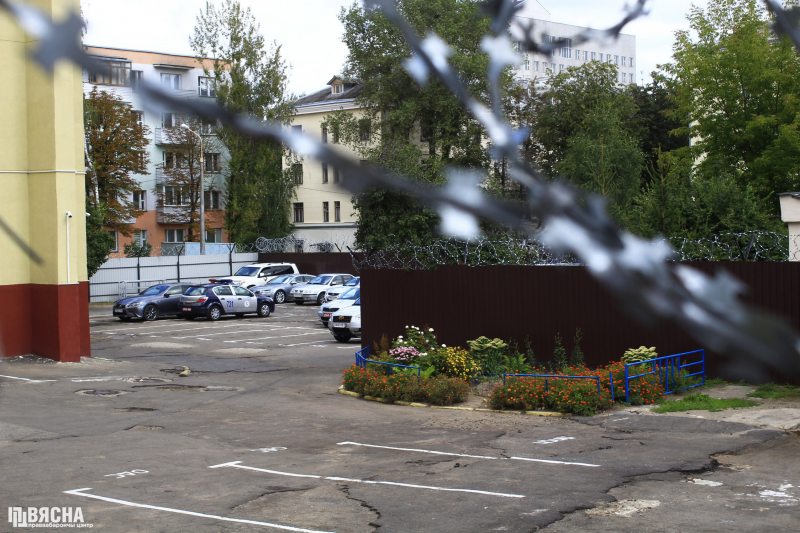
"I had to take down my pants and stand in my underwear in the middle of the hall." Survivor stories
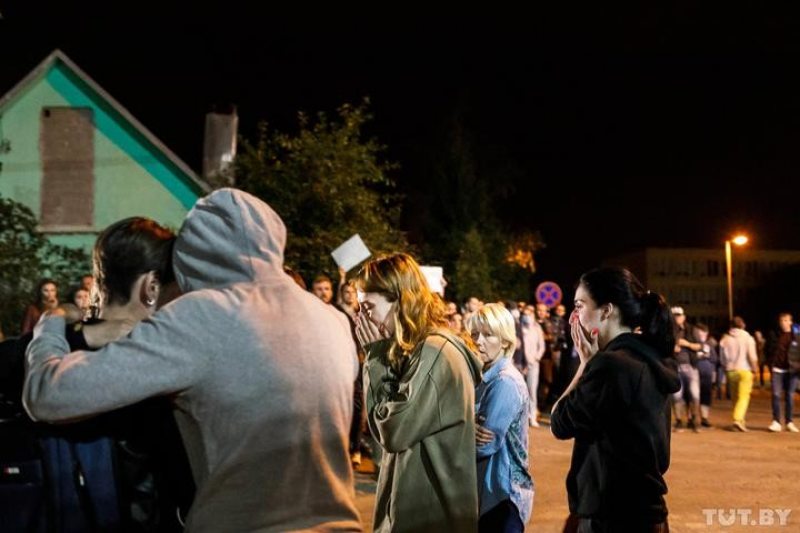
"Riot policeman took another baton and said: 'I wanted to be a drummer all my life.'" Survivor stories
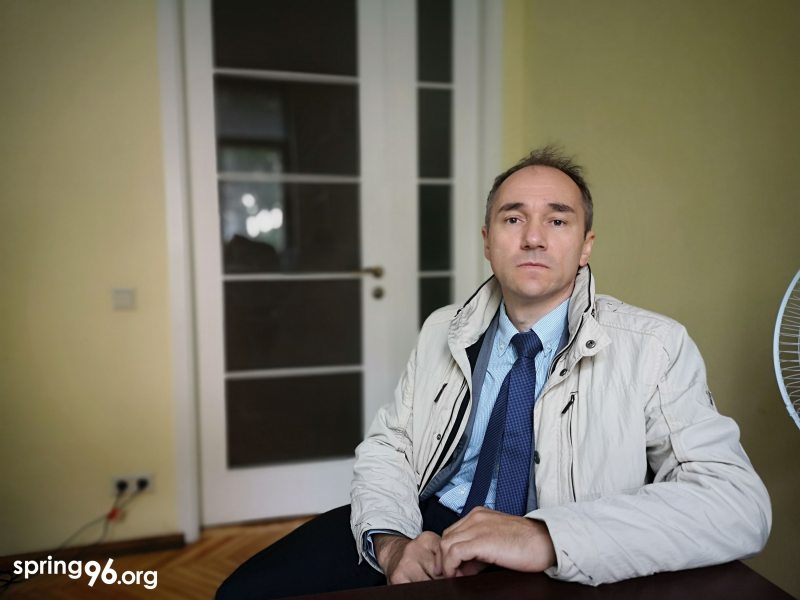
"They broke my ribs and found me guilty." Survivor stories
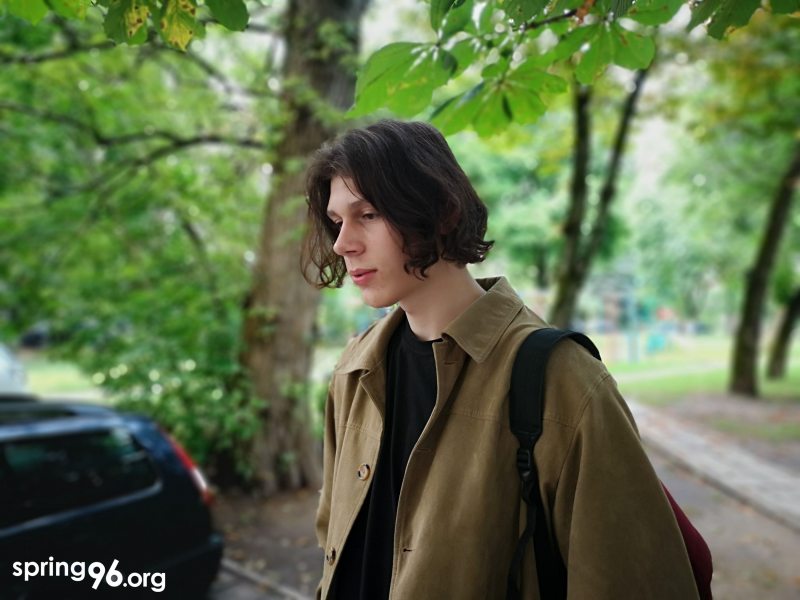
"When they looked at my ID, the beating became softer." Survivor stories
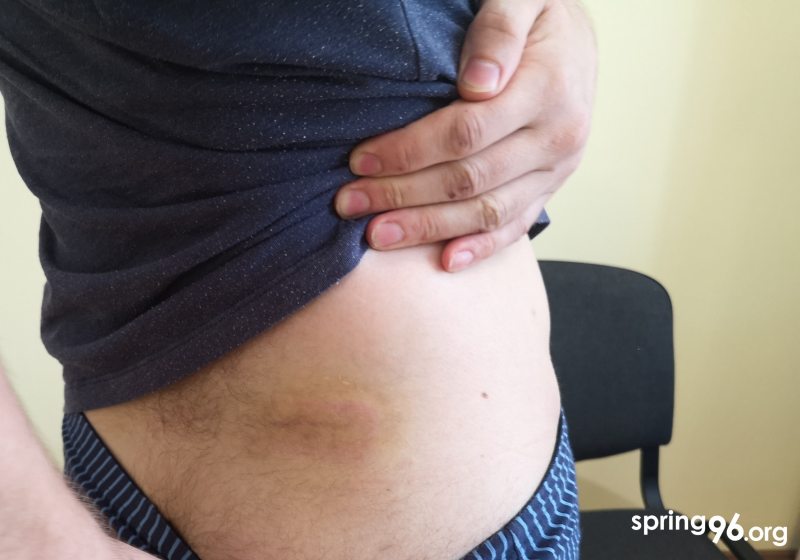
Rape threats and "shared responsibility". Survivor stories
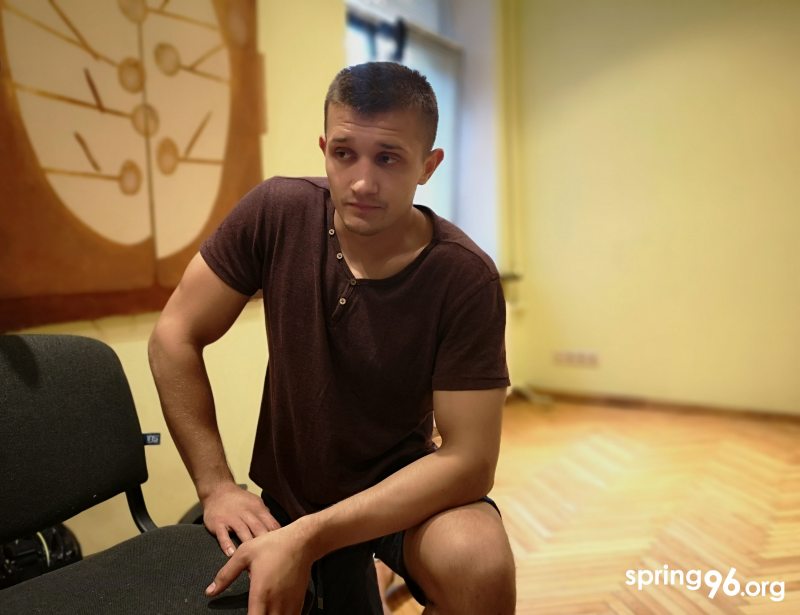
"You have thrown Molotovs!" they said and hit us with a Taser." Survivor stories
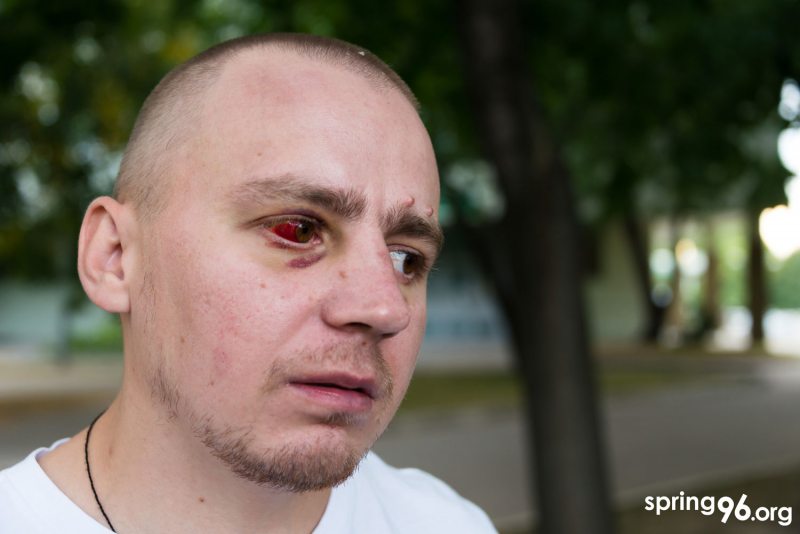
"They started beating me again and said: 'This is a refill for you!'" Survivor stories
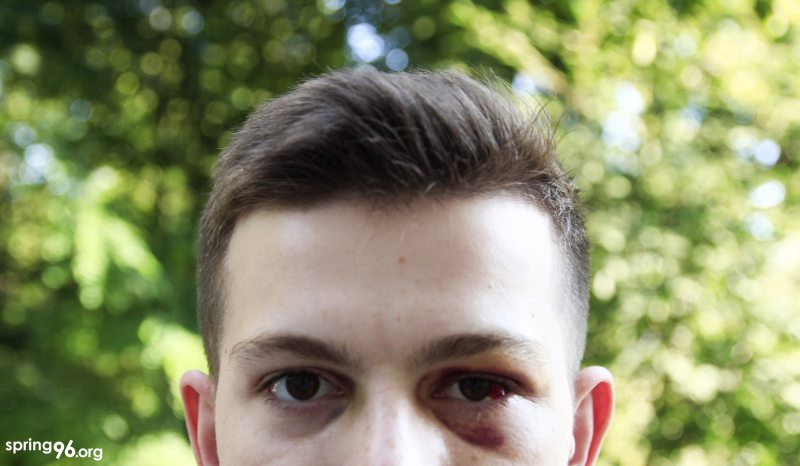
"A paramedic came and started beating people." Survivor stories
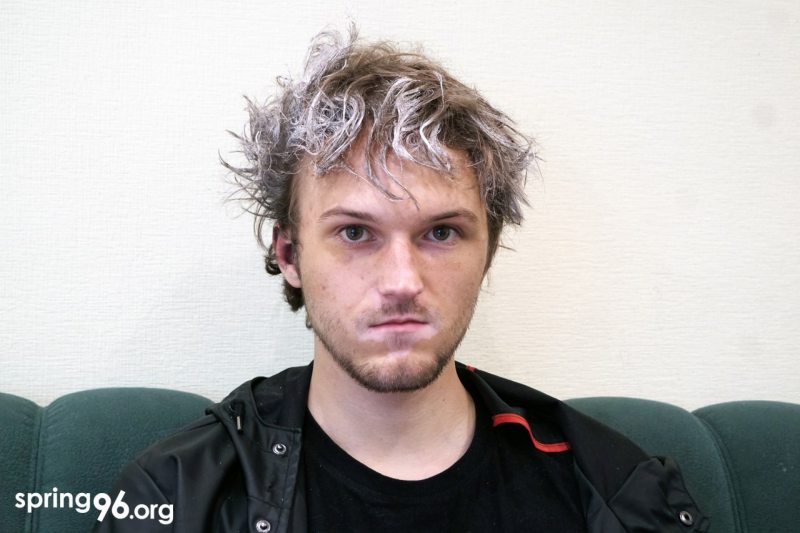
"White paint was poured on my head. It was like a sign to beat me harder." Survivor stories
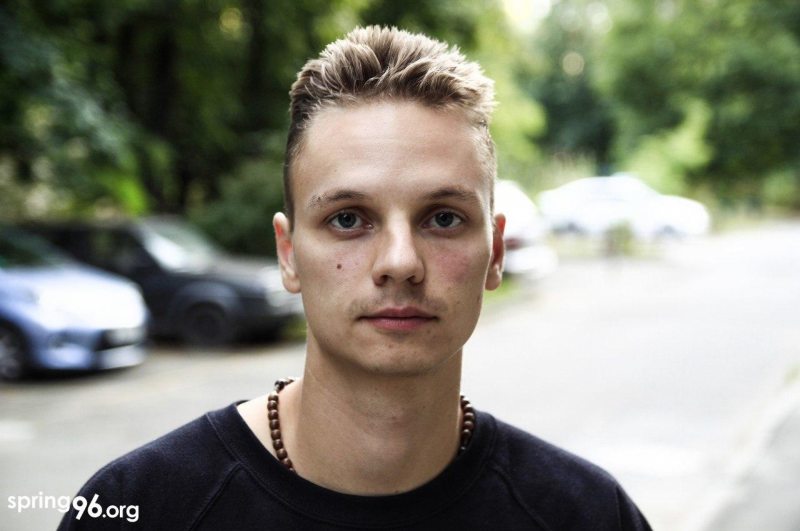
"One of them beats you and the other aims at you with a machine gun." Survivor stories
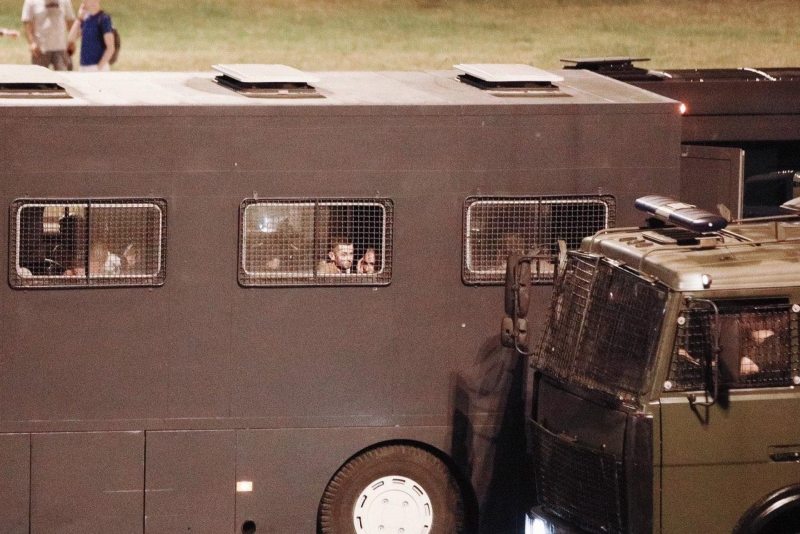
"They took away my bra with a breast prosthesis." Survivor stories
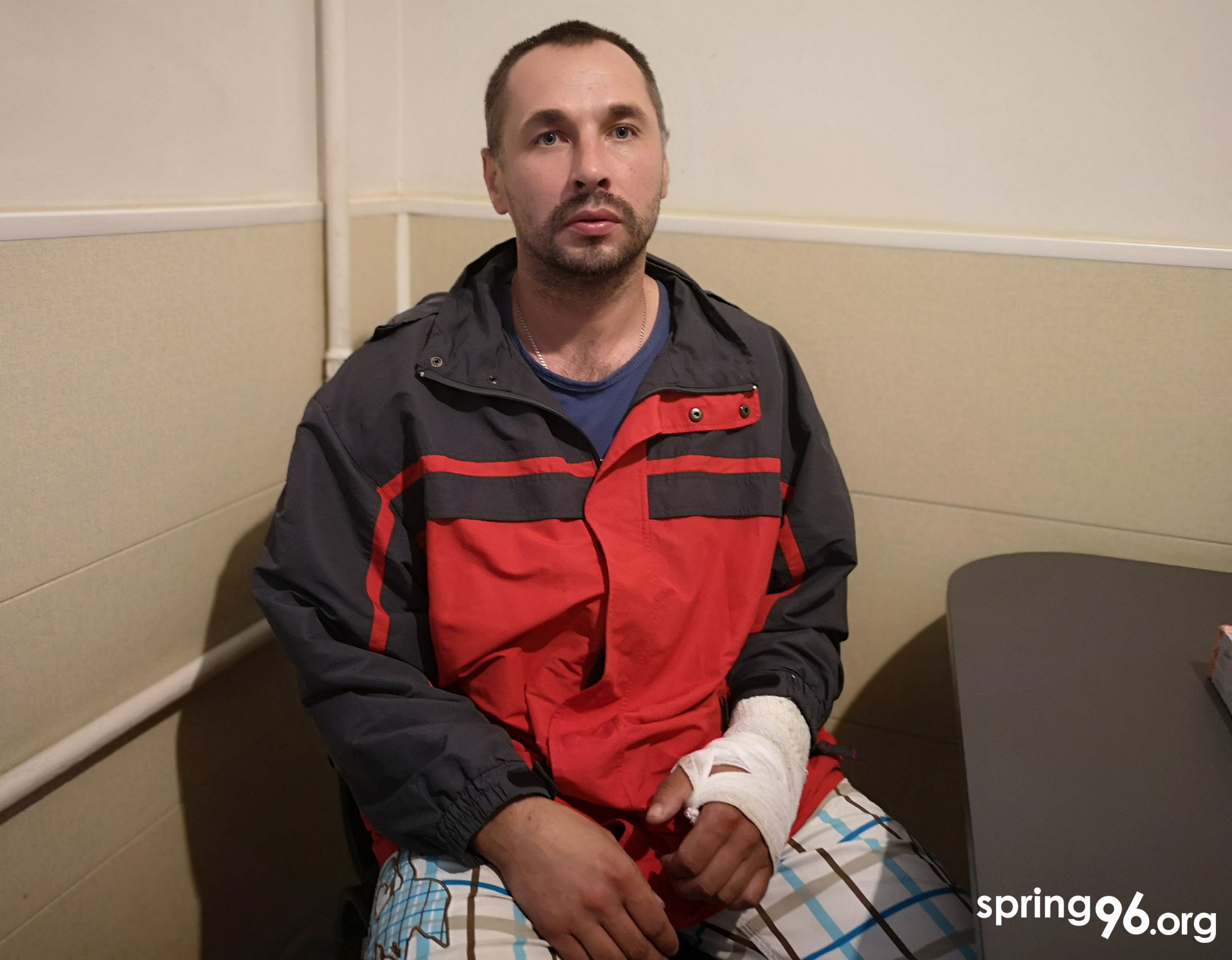
"Road police officers broke my arm during detention." Survivor stories
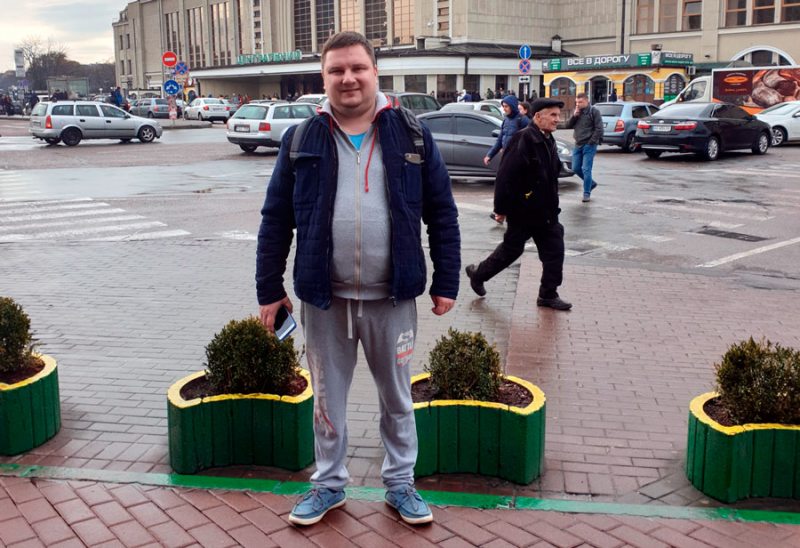
"I was lucky to be a journalist and to have my kidneys thrashed previously." Survivor stories
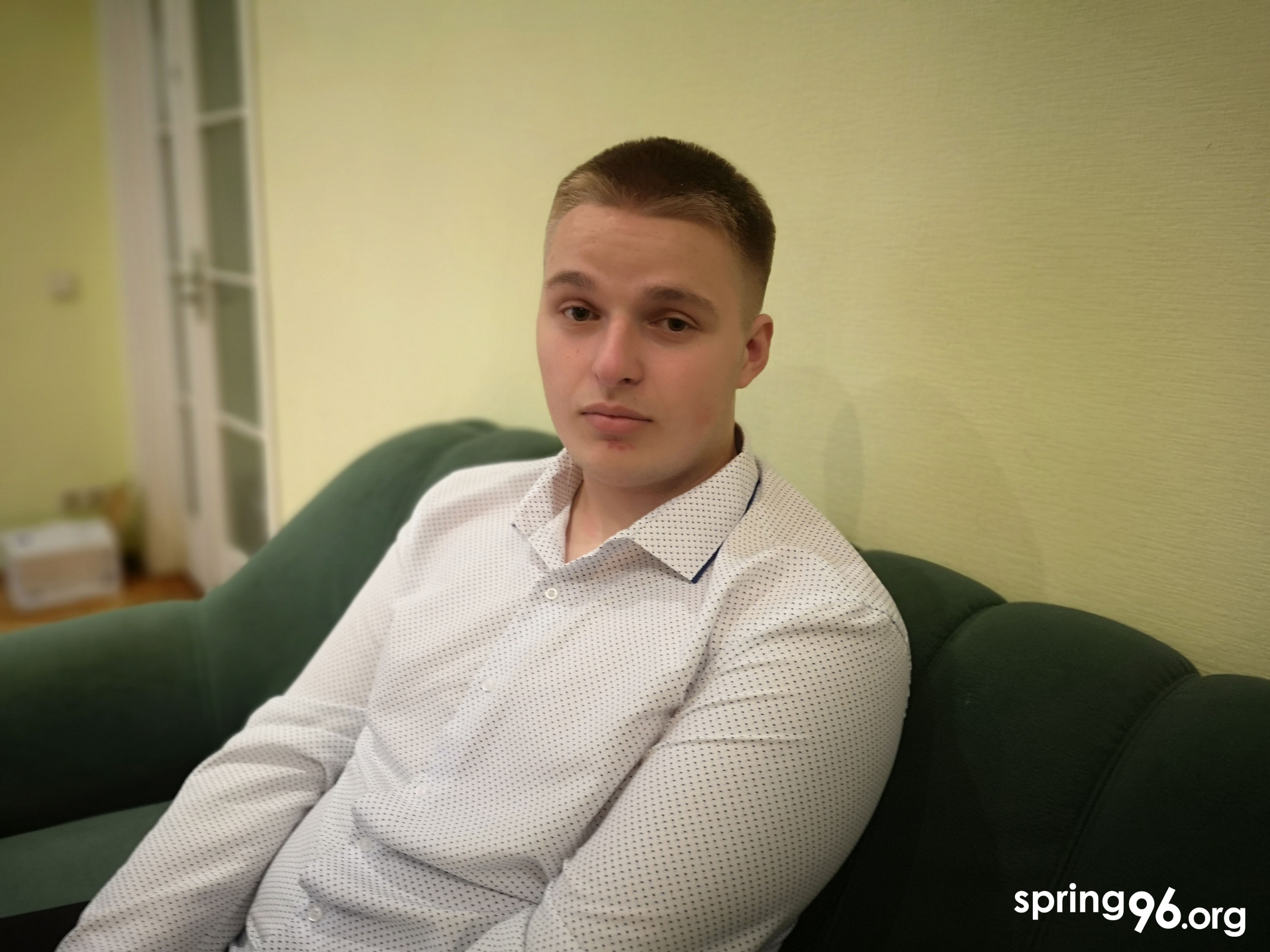
“We will shoot you and you will never be found.” Survivor stories
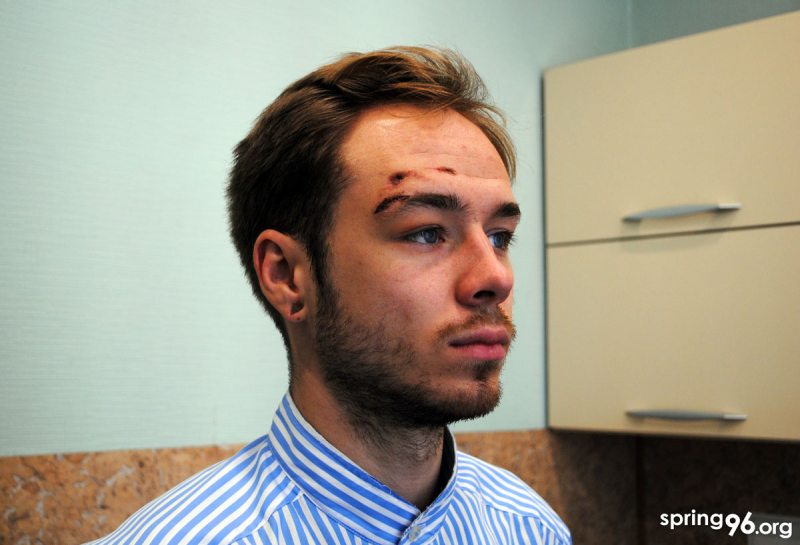
“We were trampled in the police bus.” Survivor stories
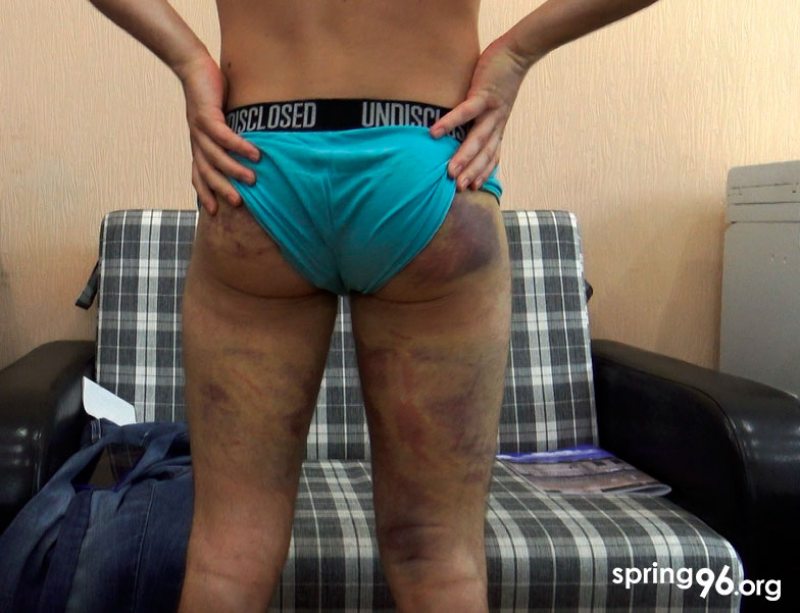
“Now we’ll show you how to s..t your pants." Survivor stories
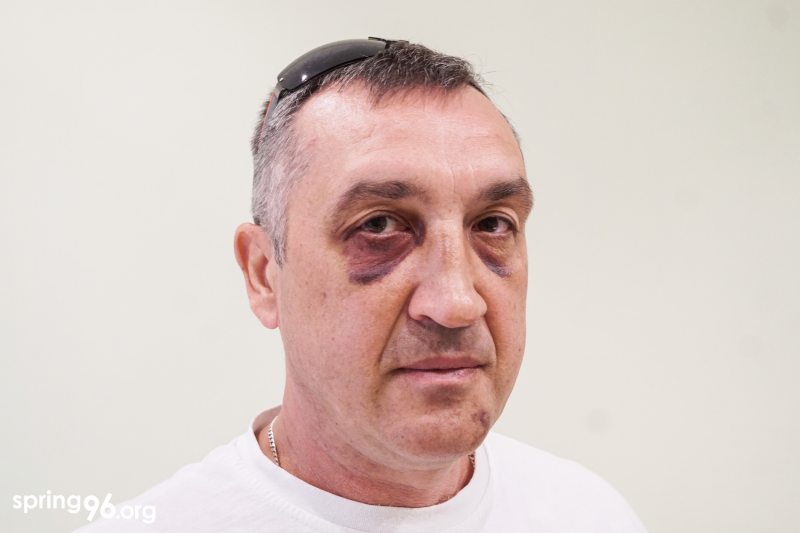
“So you are for Tsikhanouskaya?” Survivor stories
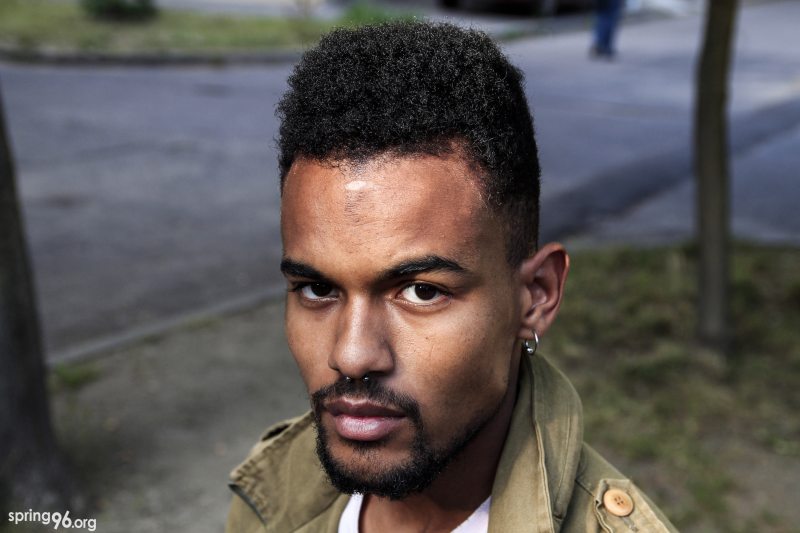
"Officers abused me all the time because I’m black." Survivor stories
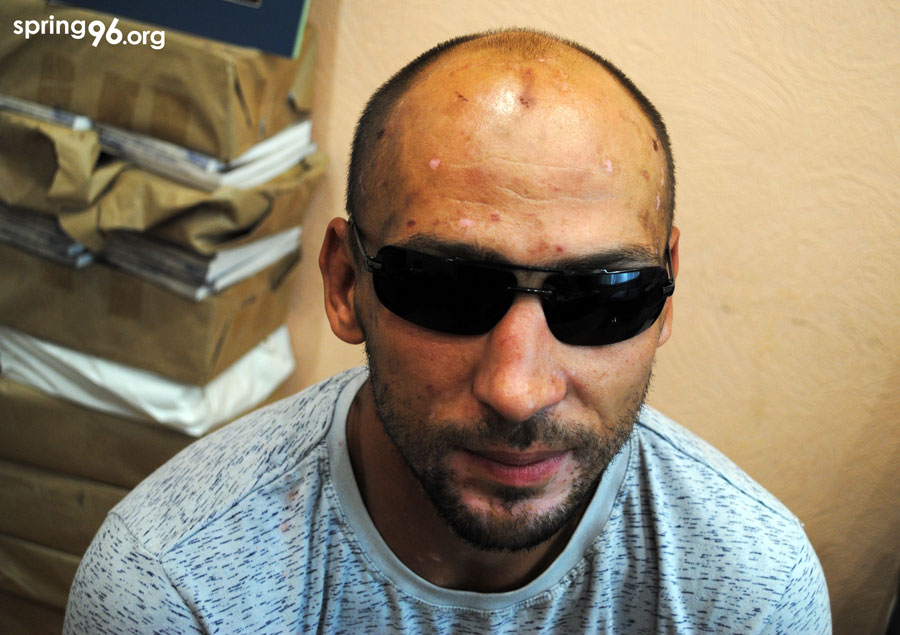
“They kicked me in the head with their police boots.” Survivor stories
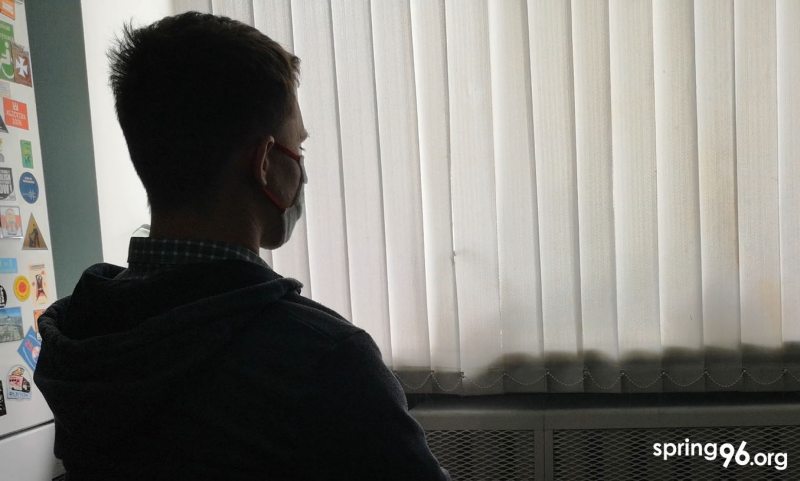
“People were screaming every night.” Survivor stories



